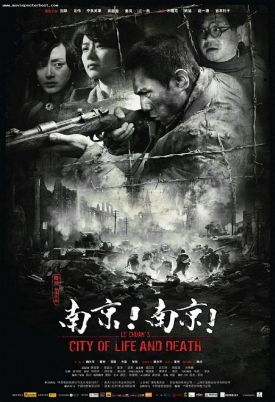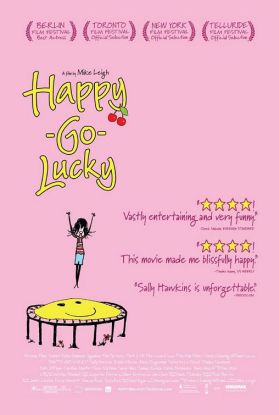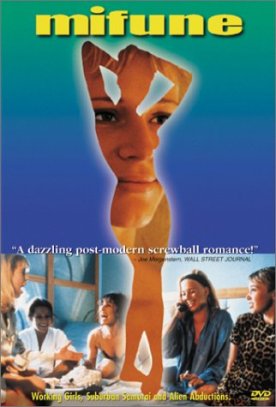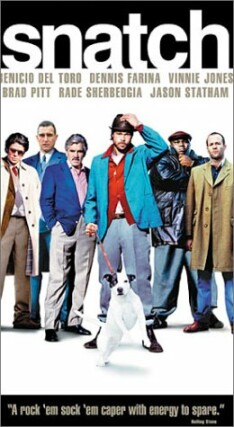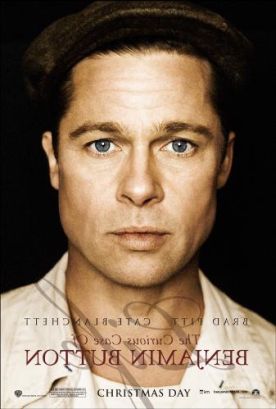City of Life and Death
Four years ago, the documentary Nanking by Bill Guttentag and Dan Sturman told the story of the horrific Japanese rape in 1937 of the city that was then the Chinese capital (it’s now called Nanjing). That movie had the tag-line: “The True Story of How a Few Brave Souls Saved the Lives of Thousands,” but this sounds a lot better than and is therefore movie publicists’ code for “The True Story of How Many More Thousands Could Not Be Saved.” That is, we like to justify becoming voyeurs of the horrible deaths and sufferings of others by (among other means) emphasizing the uplift to be derived from the few who escaped — and maybe the patriotic pride involved in their doing so, since their escape in this case was effected mostly through the agency of Americans and Europeans in the diplomatic enclave which the Japanese mostly didn’t interfere with. But for every one who escaped, hundreds more didn’t, and that’s what you were really watching when you went to Nanking.
This is even more true of the fictionalized version of the same story, City of Life and Death (Nanjing! Nanjing!) by the Chinese director Lu Chuan — except that here there is no pretense of uplift. It’s gruesome suffering all the way. Like the two Clint Eastwood pictures, Faith of Our Fathers and Letters from Iwo Jima, that were based on the battle of Iwo Jima, this movie seems to be based on a vague assumption that realism must demand as confusing, mad, chaotic and incomprehensible a representation of warfare as possible on the grounds that that is how its victims — and pretty much everyone involved can be seen as a victim in one way or another — must have experienced it. Watching it all in Mr Lu’s black-and-white version, you may find as I did that it is difficult to figure out much more than that the Chinese are losing, and losing badly, to the Japanese and that they are then being massacred by them once they have been disarmed.
There is a paradox in this kind of realism. For although “the fog of war” is well established as a perceptual reality, most wars — including even this one — would not have happened at all if those who fought them had only that kind of experience and had not had some comprehensible purpose in fighting and some rational approach to doing so. Therefore, to ignore the military rationale for what is happening on screen is actually a failure of realism. Moreover, this failure has its own rationale — and therefore should be regarded as a kind of success! For the real purpose behind movies such as this is not perfect truth-to-life but rather the ideological one of persuading people that war is merely confusing, mad, chaotic and incomprehensible. The ideology behind them, that is, is pacifism.
Like most pacifism, too, it ostentatiously seizes the moral high ground at the opening of its scorched earth campaign. Do you dare to belittle or ignore the sufferings you are about to see? Can you seriously maintain that they have or can have any meaning? You had better bethink yourself: it is advisable to sigh and nod the head and say along with the movie-makers and all their right-thinking audience: “Poor people! They never had a chance! What a sense of pity and compassion I now feel, retrospectively, for their plight.” So much pity and compassion, indeed, that you may persuade yourself of the superior virtue of your sitting in comfort at home, minding your own business and not studying war any more, no matter how superficially just or righteous the cause.
There is a further problem that Mr Lu comes up against in City of Life and Death as a result of its fictionalization of historical events. It’s bad enough for a movie-history, like any other, to select the story it has to tell solely on the basis of its pathos, for ideological reasons; it’s even worse then to invent people and events in order to make that story even more pathetic. Cinematic drama, like any other, depends on the audience’s sympathetic participation in the characters’ choices, and those choices together with the ability to make them depend on those characters living a life in certain essential respects like the audience’s own — that is, in a choice-filled environment. In a drama where most of the characters have no choices but are merely the victims of overwhelming circumstance, that sympathetic participation is impossible. All we can do is stand back from the horror the characters experience and feel sorry for them.
To Mr Lu’s credit, he does scoop out of this welter of suffering humanity two or three characters who do have choices to make. One is Mr Tang (Wei Fan), a Chinese family man and secretary to the German businessman and Nazi official John Rabe (John Paisley) — a man unlike the real John Rabe, who rescued thousands, but who seems to stand for the Westerners’ lack of choice by continually apologizing to the Chinese for what he has no power to prevent. Mr Tang imagines that he and his family will be safe from the Japanese onslaught because he works for Japan’s ally, Germany. When this proves not to be the case, Mr Tang imagines that he has the choice of saving his own family by betraying to the Japanese some Chinese soldiers being treated in the Westerners’ hospital in their Safety Zone — and then a further choice beyond that one. These choices will either damn or redeem him in our eyes.
Another moral agent in the film is the Japanese Sergeant Kadokawa (Hideo Nakaizumi), a sensitive youth who has his first sexual experience with a Japanese “comfort woman,” Yuriko (Yuko Miyamoto), and then imagines himself in love with her. Yuriko’s own experience appears to involve very little more choice than that of the Chinese women called upon to perform the same services for their conquerors in exchange for enough food and fuel to get themselves and their children through the winter. But the sergeant’s touching innocence, together with the terrible choice he subsequently feels himself driven to make, is then used to persuade us of an underlying sense of decency even among (at least one of) those whom we have seen behaving so barbarously to the conquered Chinese.
I have no fault to find with either of these little dramas so far as they go, nor even with the attempt to see things, to this very limited extent, from the barbarians’ own point of view. The problem is that such moral studies are overwhelmed by the sheer horror of the atrocities going on all around them. It becomes difficult to care as much as we should about the fates either of the Tang family or of Sgt. Kadokawa when they unspool in the midst of so much and so much greater human misery (on the one hand) and moral squalor (on the other). In this flat and featureless dramatic landscape, the few stories that emerge involving something more than just rape and murder therefore create a false impression of dramatic coherence and meaning. The only meaning Mr Lu’s film really has to offer is that war — and especially this war — is hell. You may have heard that before.
Discover more from James Bowman
Subscribe to get the latest posts to your email.

